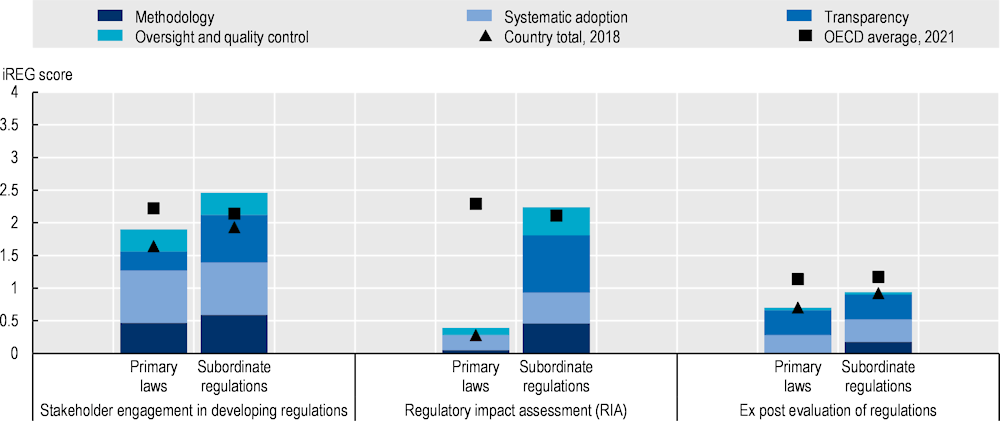Regulatory policy in Costa Rica continues to focus on improving the business environment by reducing administrative burdens for citizens and business. This includes several strategies to intensify administrative simplification efforts, for instance streamlining the stock of government formalities.
Costa Rica has introduced several changes to expand stakeholder engagement in the development of regulations, such as forward planning and a more intensive use of the SICOPRE, a centralised webpage that makes regulatory impact assessments (RIAs) and public consultations available and allows for comments by the public, to which regulators respond. RIA is employed in the development of technical regulations. However, for the rest of the subordinate regulations, it is only required when the draft regulation includes the creation of government formalities. Building on the progress achieved in enhancing public consultation in rule making, Costa Rica should enlarge the use of RIA to all types of subordinate regulation. Pilot programmes on selected ministries could help identify key lessons in the implementation of a whole‑of-government RIA system.
Two bodies within the Ministry of Economy, Industry and Trade are in charge of regulatory oversight functions in Costa Rica. The Better Regulation Unit is in charge of RIA quality control of technical regulations and administrative formalities, as well as of co-ordinating and promoting regulatory policy through the provision of training and advice. The Quality Unit oversees the development of technical regulation, including verification of compliance with RIA requirements. This unit performs stakeholder consultation and analysis of the technical regulation stock to identify reform needs.
Indicators presented on RIA and stakeholder engagement for primary laws only cover processes carried out by the executive, which initiates approx. 17% of primary laws in Costa Rica. The Legislative Assembly has put in place processes different from those used by the executive by which public consultation is sought. There is no formal requirement in Costa Rica for conducting RIAs to inform the development of primary laws initiated by parliament.


 All/■ Always/▲ Yes
All/■ Always/▲ Yes  Major/■ Frequently
Major/■ Frequently Some/■ Sometimes
Some/■ Sometimes Never/▲ No
Never/▲ No